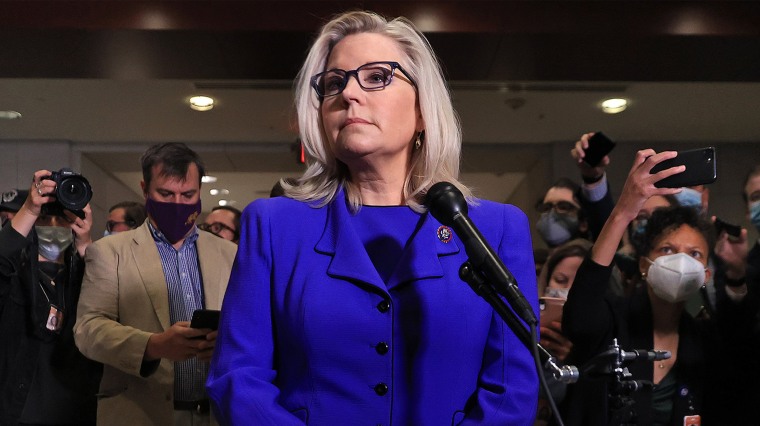On the surface, Rep. Liz Cheney (R-Wyo.) appears eager to restore her party's commitment to democracy. Before and after her ouster from the House Republican leadership, the Wyoming congresswoman denounced Donald Trump's Big Lie, condemned the Jan. 6 insurrectionist riot, and pleaded with her GOP colleagues to honor the rule of law and the integrity of the U.S. system of government.
"Our duty is clear," Cheney declared on the House floor, the night before House Republicans fired her as the House GOP Conference chair. "Every one of us who has sworn the oath must act to prevent the unraveling of our democracy."
One might be tempted to perceive remarks like these as proof that Cheney may be a far-right Republican on a wide range of issues, but when it comes to core issues related to election results and the pillars of our democratic system, the Wyoming congresswoman is the kind of Republican whom Democrats can see a governing partner.
Except, that's not quite right. The Washington Post reported this morning:
For months, Rep. Liz Cheney (R-Wyo.) has decried former president Donald Trump's false claims of massive election fraud — a stance that cost her a leadership position in the House earlier this month. But when pressed on Sunday about whether Trump's falsehoods were the cause of Republican moves to pass restrictive new voting laws in dozens of states, Cheney disputed the suggestion.
In the wake of Republican defeats last fall, GOP officials at the state level have launched the more aggressive campaign against voting rights since the Jim Crow era. There's no great mystery about the motivation: Donald Trump lost, lied about his defeat, and created a pretense for a sweeping voter-suppression initiative.
But on "Axios on HBO," Cheney told Jonathan Swan she doesn't accept the connection between the former president's Big Lie and their party's anti-voting proposals.
"I think you have to look at the specifics of each one of those efforts," Cheney said, rather than simply acknowledge what is plainly true.
When the interviewer noted he doesn't "think anyone doubts" that correlation between ridiculous Republican conspiracy theories about the 2020 elections and anti-voting proposals, Cheney suggested she isn't comfortable with the link.
In fact, the congresswoman went so far as to tell Swan, "If you look at the Georgia laws, for example, there's been a lot that's been said nationally about the Georgia voter laws that turns out not to be true."
First, for the record, the partisan effort to argue that Georgia's voting restrictions aren't that bad is absurd. Georgia's voter-suppression law is genuinely awful on the merits and will make it needlessly more difficult for the state's voters to participate in their own democracy.
Second, more important is what the public learned from the interview. Liz Cheney is ostensibly one of her party's leading voices on the inherent value of democracy. It's an issue she felt so strongly about that the congresswoman sacrificed her role as a congressional leader and invited the wrath of Republican extremists who expect her to pretend the Big Lie is true.
But it now appears that even Liz Cheney isn't willing to stand up in support of voting rights, offering a timely and painful reminder to voting rights advocates that in contemporary GOP politics, effectively no one in the party can be counted on as an ally.
